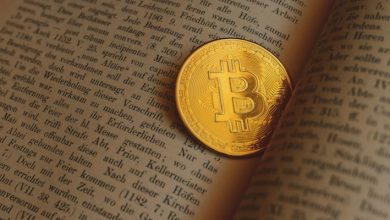The Future of DeFi: Decentralized Finance Beyond Lending and Borrowing

- Exploring the diverse applications of DeFi
- The evolution of decentralized finance
- Beyond the basics: DeFi’s potential for innovation
- Unlocking new possibilities with decentralized finance
- DeFi’s impact on traditional financial systems
- The future landscape of decentralized finance
Exploring the diverse applications of DeFi
DeFi has evolved beyond its initial focus on lending and borrowing to encompass a wide range of applications across various industries. This expansion has opened up new opportunities for users to explore the diverse functionalities of decentralized finance platforms.
One of the key areas where DeFi is making a significant impact is in the realm of decentralized exchanges (DEXs). These platforms allow users to trade cryptocurrencies directly with one another, without the need for a centralized intermediary. This not only increases the efficiency of trading but also enhances the security and privacy of transactions.
Another emerging application of DeFi is in the realm of asset management. Through decentralized asset management platforms, users can create and manage investment portfolios using smart contracts, removing the need for traditional fund managers. This not only reduces costs but also provides greater transparency and control over investment decisions.
In addition to trading and asset management, DeFi is also being used in the realm of decentralized identity verification. By leveraging blockchain technology, users can securely verify their identity without relying on centralized authorities. This has implications for a wide range of industries, from finance to healthcare, where identity verification is crucial.
Overall, the diverse applications of DeFi are reshaping the landscape of finance and beyond. As the ecosystem continues to evolve, we can expect to see even more innovative use cases emerge, providing users with new ways to interact with decentralized financial services.
The evolution of decentralized finance
Decentralized finance (DeFi) has come a long way since its inception, evolving in various ways beyond just lending and borrowing. The evolution of DeFi has seen the emergence of new use cases and applications that leverage blockchain technology to create a more open and transparent financial system.
One of the key developments in the evolution of DeFi is the rise of decentralized exchanges (DEXs). These platforms allow users to trade cryptocurrencies directly with one another, without the need for a centralized intermediary. DEXs offer greater privacy and security compared to traditional exchanges, making them a popular choice among crypto traders.
Another important trend in the evolution of DeFi is the growth of decentralized autonomous organizations (DAOs). These organizations are run by smart contracts on the blockchain, allowing for decentralized decision-making and governance. DAOs have the potential to revolutionize how organizations are structured and operated, enabling greater transparency and participation among members.
Furthermore, the rise of decentralized oracles has enabled DeFi applications to access real-world data in a secure and trustless manner. Oracles provide critical information to smart contracts, allowing them to execute complex financial transactions based on external data sources. This has opened up new opportunities for DeFi applications to expand beyond their original use cases.
Overall, the evolution of DeFi is driving innovation and pushing the boundaries of what is possible in the world of finance. As new technologies and applications continue to emerge, decentralized finance is poised to revolutionize the financial industry and create new opportunities for users around the globe.
Beyond the basics: DeFi’s potential for innovation
Looking beyond the basics of decentralized finance (DeFi) reveals a world of endless possibilities for innovation. While lending and borrowing have dominated the DeFi landscape, there are numerous other avenues for exploration and development within this burgeoning ecosystem.
One area of potential growth is decentralized exchanges (DEXs), which allow for peer-to-peer trading of digital assets without the need for intermediaries. By leveraging smart contracts, DEXs can offer users increased security, transparency, and control over their assets.
Another exciting avenue for innovation in DeFi is the emergence of decentralized insurance protocols. These platforms enable users to protect their assets against smart contract failures, hacks, and other risks without the need for traditional insurance providers.
Furthermore, decentralized identity solutions are poised to revolutionize how individuals manage and secure their personal information. By utilizing blockchain technology, users can maintain control over their digital identities and selectively share data with third parties.
In addition to these examples, the potential for innovation in DeFi extends to numerous other areas, including decentralized prediction markets, asset management protocols, and more. As the DeFi ecosystem continues to evolve, the possibilities for innovation are truly limitless.
Unlocking new possibilities with decentralized finance
Decentralized finance (DeFi) has opened up a world of possibilities beyond just lending and borrowing. The potential of DeFi extends far beyond these traditional use cases, offering a wide range of opportunities for individuals and businesses to explore.
One of the key advantages of DeFi is its ability to unlock new possibilities for financial inclusion. By removing the need for traditional intermediaries, DeFi allows individuals who are underserved by the traditional financial system to access a wide range of financial services.
Decentralized exchanges (DEXs) are one of the most popular applications of DeFi, allowing users to trade a wide range of assets without the need for a central authority. This opens up new opportunities for individuals to access liquidity and trade assets in a decentralized and permissionless manner.
Another exciting application of DeFi is the rise of decentralized autonomous organizations (DAOs). These organizations are governed by smart contracts, allowing members to vote on key decisions and participate in the management of the organization in a transparent and decentralized manner.
Overall, the future of DeFi is bright, with new innovations and applications emerging every day. By unlocking new possibilities for financial inclusion, decentralized finance is set to revolutionize the way we think about and interact with the financial system.
DeFi’s impact on traditional financial systems
DeFi’s impact on traditional financial systems cannot be understated. The rise of decentralized finance has the potential to revolutionize the way we think about and interact with money.
One of the key ways that DeFi is changing the traditional financial landscape is by removing the need for intermediaries such as banks. This has the potential to democratize finance, giving individuals more control over their own money and reducing the fees associated with traditional banking services.
Furthermore, DeFi is also opening up new opportunities for financial inclusion, allowing people who were previously excluded from the traditional financial system to access a wide range of financial services. This has the potential to empower individuals and communities that have been historically underserved by traditional banks.
In addition, DeFi is also challenging the existing power structures within the financial system. By creating decentralized networks that are not controlled by any single entity, DeFi has the potential to reduce the influence of large financial institutions and promote a more equitable distribution of wealth.
Overall, the impact of DeFi on traditional financial systems is still being felt, but it is clear that decentralized finance has the potential to transform the way we think about and interact with money in the future.
The future landscape of decentralized finance
As decentralized finance (DeFi) continues to evolve, the future landscape of this innovative space is shaping up to be even more diverse and robust. Beyond the traditional lending and borrowing activities that have dominated the DeFi scene, new possibilities are emerging that promise to revolutionize the way we think about financial services.
One of the most exciting developments in the future of DeFi is the rise of decentralized exchanges (DEXs). These platforms allow users to trade cryptocurrencies directly with one another, without the need for a centralized intermediary. This not only increases the security of transactions but also reduces fees and improves liquidity in the market.
Another trend that is gaining momentum in the DeFi space is the concept of decentralized autonomous organizations (DAOs). These are community-run organizations that operate on blockchain technology, allowing members to vote on decisions and govern the organization collectively. DAOs have the potential to disrupt traditional corporate structures and create more transparent and democratic systems of governance.
Additionally, the future of DeFi is likely to see the emergence of new financial products and services that are currently unimaginable. From decentralized insurance and prediction markets to tokenized real estate and synthetic assets, the possibilities are endless. As developers and innovators continue to push the boundaries of what is possible with blockchain technology, the DeFi landscape is poised for exponential growth and innovation.



